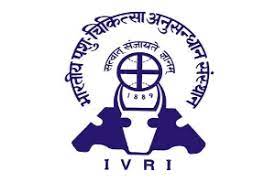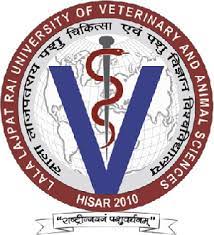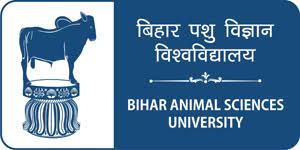If you've ever wondered about the benefits of a Ph.D. in Veterinary Public Health, it's important to consider a few key facts. First of all, veterinary public health professionals can enjoy a wide variety of career options. Among them are veterinarians, food safety experts, and biosecurity professionals. The degree also opens many doors for future careers as an animal-health researcher.
A Ph.D. in one of the highest-ranking qualifications awarded by higher education institutions. Not only does it give a graduate the right to use the title of "Doctor," but it also means they have deep knowledge and expertise in the field. If you're fascinated by science, you may want to explore a Ph.D. in veterinary medicine. The coursework usually involves both laboratory and classroom work, as well as some practical experience in a clinic.
In addition to the Ph.D., you can also earn a DVM from UT's MPH program. The MPH program prepares you to take a board exam in Veterinary Preventive Medicine. Upon passing the exam, you can then pursue certification from the American College of Veterinary Preventive Medicine (ACVPM). Those who obtain a DVM have the professional credentials necessary to practice veterinary preventive medicine.
Ph.D. in Veterinary Public Health Eligibility
Candidates who want to take admission in Ph.D. must have a post-graduate degree in Veterinary Public Health and its relevant discipline with at least 55% marks from a recognized university and must have passed the national level entrance examination or university level entrance examination. National level entrance exams like UGC NET / UGC CSIR NET / GATE / SLET or University entrance exams consist of written tests and personal interviews.
The Benefits of a Ph.D. in Veterinary Public Health
Obtaining a Ph.D. in veterinary public health can be very beneficial. In the past, veterinarians have been recruited to serve in the US Army Veterinary Corps, the USDA Food Safety Inspection Service, and other government agencies. Today, there is a need for about 500 new veterinarians each year, and these individuals can help the country fight animal disease. With more jobs becoming available in the public sector, there is also a growing demand for trained veterinarians.
The program prepares graduates for careers in veterinary research, teaching, and service. Opportunities include governmental agencies, academic institutions, and private clinical practice. The research focus is on issues that affect animal and human health, and it requires a team approach. In addition to advancing your career, a Ph.D. in veterinary public health can help you find a job you love!
A Ph.D. in veterinary public health provides the credentials necessary to enter a career in animal and human health. In addition to specializing in a specific area, a doctorate in veterinary public, or a related field, will allow you to apply for positions in academia, government agencies, and industry. Applicants must have experience in research, teaching, and publication in peer-reviewed journals, and they must have an outstanding background in animal medicine.
The Career and Job Opportunities of Ph.D. in Veterinary Public Health
Graduates of a Ph.D. in veterinary public health program can pursue many careers. In addition to government positions, many of them find employment in industry and private practice. Some work for academic institutions. Others pursue careers in the scientific community. They can choose to work with animals or people in a variety of settings. Some of the jobs that a Ph.D. in veterinary science can lead to include:
A Ph.D. in public health can lead to a variety of careers in public health. This program emphasizes collaboration across disciplines to find solutions to complex problems. The coursework will help students bridge the gap between animal, human, and plant health. They will learn how to improve the health of all species. This degree is especially valuable in the field of veterinary medicine. However, a Ph.D. in veterinary public hygiene degree does not lead to a career in the field of veterinary public healthcare.
The program also offers opportunities to advance a career in research. Upon completion of the coursework, students complete an internship for nine weeks, called an Applied Practice Experience. This is an opportunity to apply the skills acquired as a public health veterinarian. During the first week of the internship, the student and preceptor develop a set of learning objectives that guide their work. These objectives will be discussed and decided upon jointly during the first week of the internship.
The Future Scope of a Ph.D. in Veterinary Public Health
A Ph.D. in Veterinary Public Health will allow graduates to understand the interrelationship between human and animal health, as well as the effects of these issues on the environment. As an example, recent changes in land use and the expansion of large animal production units have created new threats to human health and the environment. Moreover, animal waste and other pollutants can lead to environmental and food safety issues. In addition to this, animals are good sentinels for the detection of diseases and bioterrorism.
The scope of veterinary public health is ever-changing. Current and emerging threats to public health arise from interactions between humans and animals. These include environmental toxins, bioterrorism, and infections transmitted through animals. Likewise, public health is increasingly concerned with global issues such as the globalization of the food supply and international migration. Furthermore, environmental change is affecting wildlife populations and national and international security.
The scope of veterinary public health is broad. The daily interactions between animals, humans, and the environment have a profound impact on public health. There are several current and emerging threats to human health. These include infectious and chronic diseases, the misuse of antibiotics, and bioterrorism. In addition, these threats are compounded by factors such as the globalization of people and food systems, climate change, environmental changes, and national and global security.
Ph.D. Research Programme duration
The Ph.D. in Veterinary Public Health course is a minimum of 3 years and a maximum of 5 years in duration. This depends on the university offering the course.
Fees for research program for Veterinary Public Health
The average fee for Ph.D. in Veterinary Public Health degree is between INR 50000 and INR 500000.
 5 Years
5 Years
 PhD
PhD
 Research
Research
















 back
back